Central America
Nayib Bukele, the ruler who breaks ideologies in favor of the people
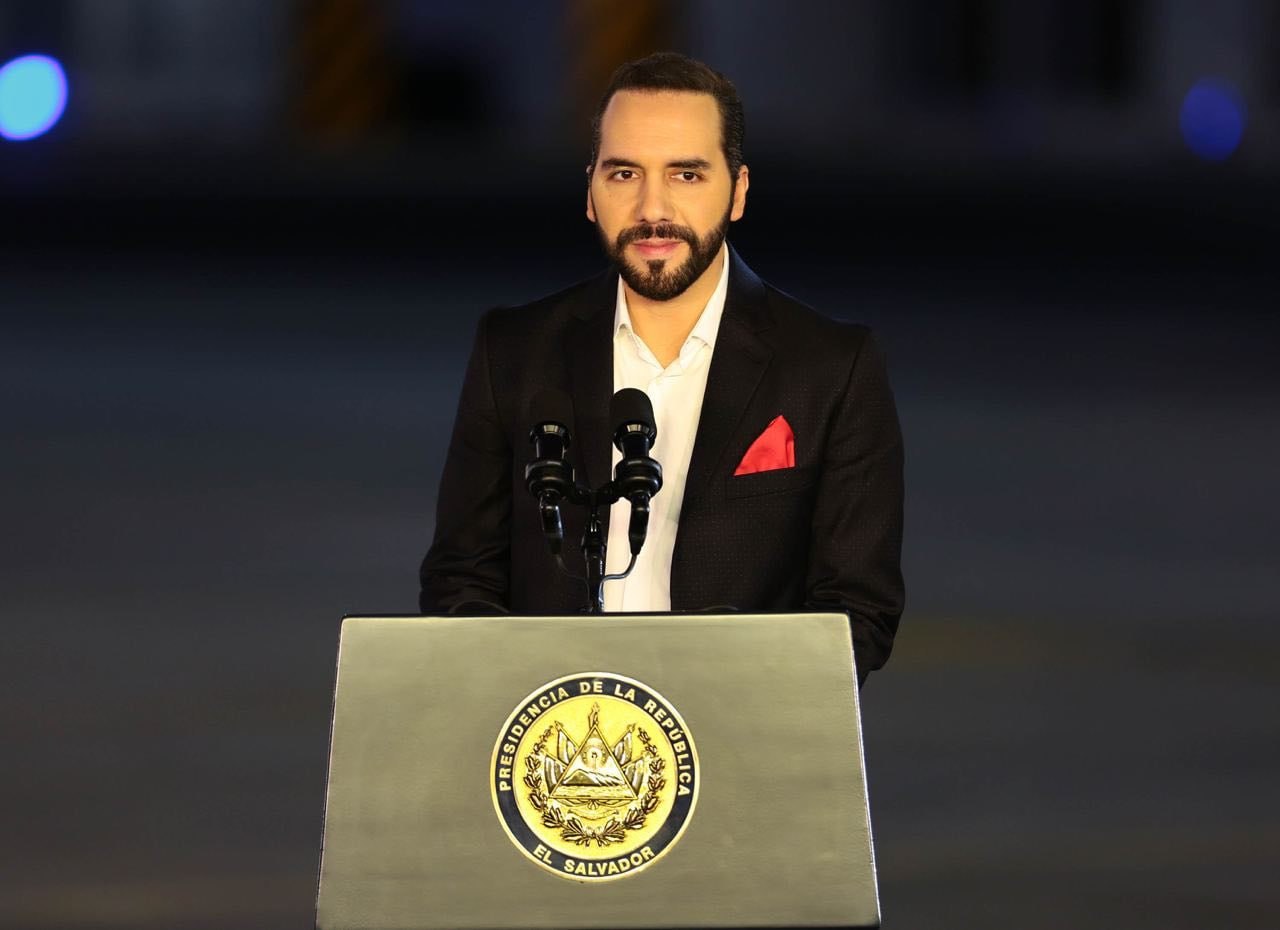
October 2 |
Nayib Bukele is a president who has transcended ideologies, which has allowed him to work without political-party ties for El Salvador and its inhabitants, especially the marginalized, the excluded and those in vulnerable situations, according to political and social analysts.
Mauricio Rodríguez and Nelson Flores, sociologist and specialist in public administration, respectively, agree that all the projects developed by the Bukele administration have the common denominator of benefiting the communities.
“Transcending ideologies allows us to see the problems of the population to attack them head on and in a forceful manner, and that is what has been done since [Bukele] came to power,” ponders political analyst and sociologist Mauricio Rodríguez.
While Flores considers that “President Bukele from the beginning of his administration managed to capture and understand the common feeling and the real needs of the most unprotected and marginalized population for decades”.
Both analysts also consider that, by transcending ideologies, the Salvadoran president is guaranteeing the welfare and social development of Salvadorans who for years were at the center of the class struggle of right and left.
“President Bukele’s actions made a difference, and his policy focused on seeking the welfare of the population with specific and timely actions,” says Flores, who is also an international cooperation consultant.
Flores maintains that Bukele, with his plan for the nation, has transcended ideologies in the areas of public security, education, health, housing and technology, with which he has put Salvadorans at the center without distinction.
“The population was unprotected and marginalized for decades by a bipartisanship [ARENA and FMLN] that only sought to satisfy the interests of its political leaders and ruling class,” he recalls.
Meanwhile, Rodríguez also maintains that the Bukele administration “has left ideologies aside and has made El Salvador move forward” despite the ungovernability caused by the previous Legislative Assembly due to the COVID-19 pandemic, the world economic crisis, among other external factors.
As part of his presidential administration without ideological ties, Bukele has consolidated diplomatic relations and friendship with powers such as the United States, Turkey, the People’s Republic of China, among others. Diplomatic relations were recently established with Equatorial Guinea, Ghana, Rwanda, Sierra Leone, Burundi and Angola, in the African continent.
On the contrary, every year-end ARENA and FMLN showed how to block -for ideological reasons- the development of the country and the wellbeing of its inhabitants. The FMLN and ARENA in the Legislative Assembly conditioned their votes on the approval of the general state budget. The ARENOS repeated the same script when they were the opposition in the Congress and the Farabunditas governed the Executive.
Former ARENA advisor and political analyst Carlos Araujo has recognized that the so-called representative democracy and the balance of power have only served for the opposition to block each other and affect the welfare of the people.
“During these 30 years one was in the Government and the other side was in the Assembly with the opposition, and what did they do? They blocked each other […]. Democracy did not solve the big problems that the people demanded”, explains Araujo.
With his triumph in February 2019, Bukele broke with 30 years of the arenero-efemelenista bipartisanship, being considered a person without ideological prejudices that has allowed building a new country from Plan Cuscatlán.
His triumph at the polls, with over 53% of votes, made him the youngest president in the recent history of El Salvador who did not have the traditional ARENA and FMLN parties as his guide, both of which are today splashed by corruption scandals after leaving the Executive.
Bukele is the best evaluated and most popular head of state of El Salvador more than four years after the beginning of his administration, something unprecedented in the recent history of the country, as well as the most influential politician in the region, according to surveys of national and international firms.
With a view to the 2024 elections, Bukele has a 68.4% voting intention, according to the latest public opinion poll of the Universidad Francisco Gavidia (UFG).
Central America
Arrests and clashes in Tegucigalpa as vote count continues after Honduras election
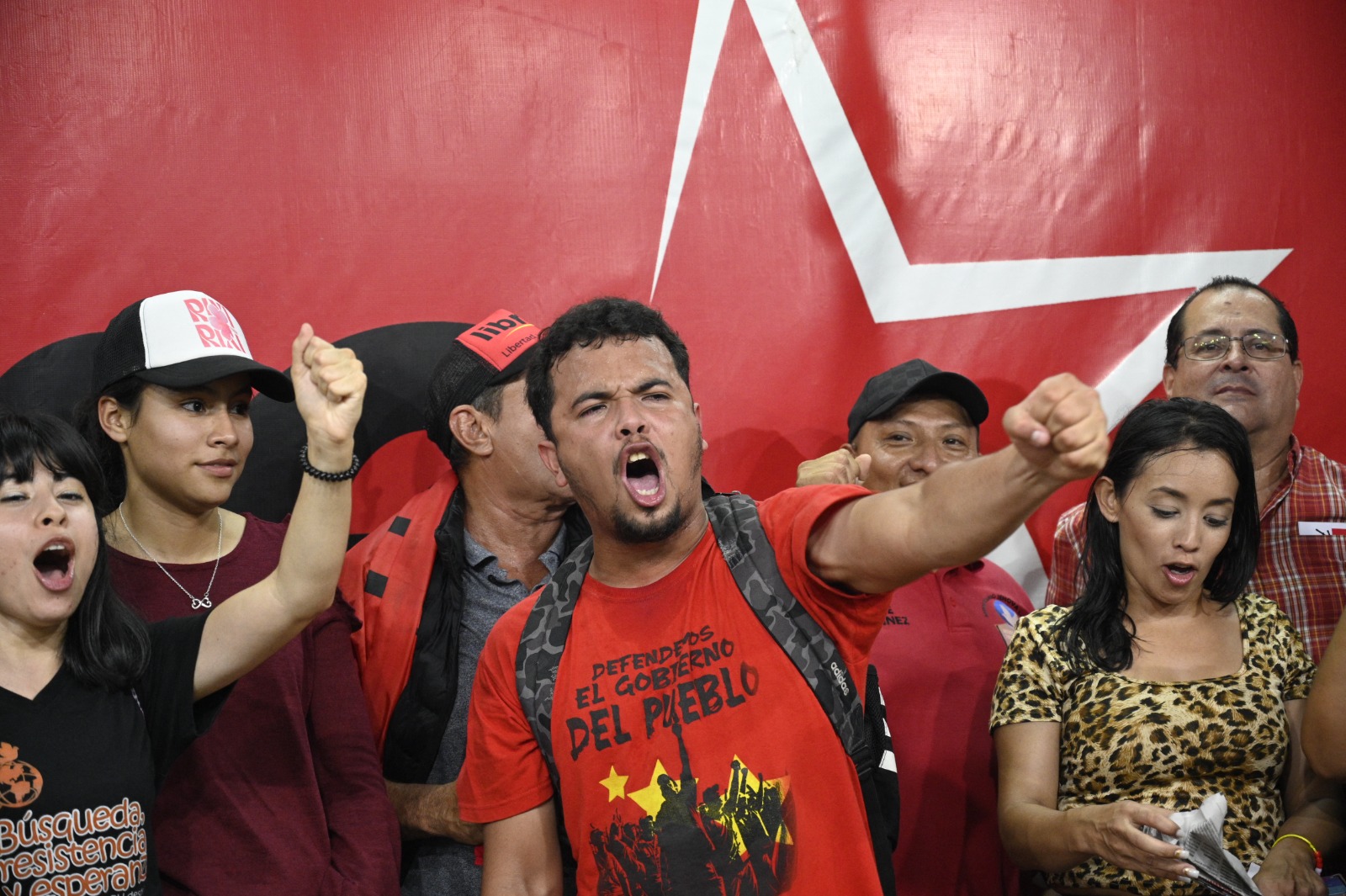
Protesters affiliated with the ruling Liberty and Refoundation Party (Libre) gathered in a demonstration that led to several arrests, disturbances, the burning of tires, and left at least 15 people injured outside the center where votes from Honduras’ November 30 general election are still being counted.
The group assembled on Monday outside the National Institute for Professional Training (INFOP) in Tegucigalpa, after President Xiomara Castro called on supporters through social media, claiming that a “new coup d’état” was being plotted in Honduras.
“I call on the people, social movements, grassroots organizations, party militants and citizens to urgently and peacefully gather in Tegucigalpa to defend the popular mandate, reject any coup attempt and make it clear to the world that a new coup is taking shape here,” the president said.
Castro has stated that she does not recognize the partial election results, which currently place right-wing candidate Nasry Asfura in the lead with 40.54% of the vote, followed closely by liberal candidate Salvador Nasralla with 39.20%. The ruling party’s candidate, Rixi Moncada, remains in a distant third place with 19.30%, with no realistic chance of a comeback.
Both the Libre Party and the Liberal Party, led by Castro and Nasralla respectively, have alleged electoral fraud. On Tuesday, the two parties agreed to participate in the special review panels that the National Electoral Council (CNE) says will finalize the count by reexamining 1,081 polling records flagged for irregularities.
Former president Manuel Zelaya, Castro’s husband and a senior figure within Libre, said last week that according to his party’s own nationwide tally of presidential ballots, Nasralla—a former Libre member—won the election.
Central America
Bukele says AI partnership with xAI will transform public education in El Salvador
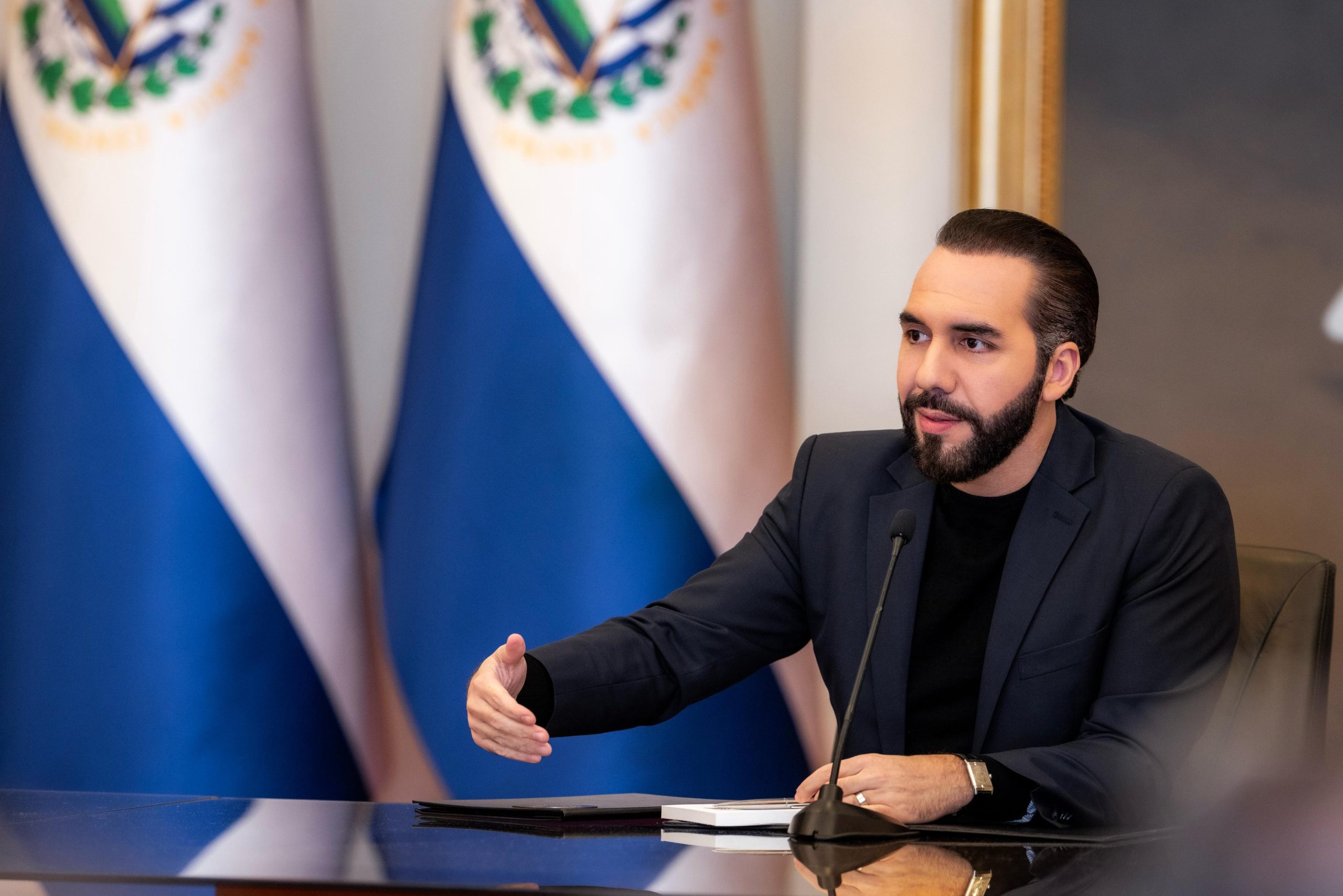
President Nayib Bukele stated on Monday that the implementation of Artificial Intelligence (AI), with the support of Elon Musk’s company xAI, will help redefine the future of public education in El Salvador.
“El Salvador and xAI will redefine the future of public education. Children will not use Grok the same way we use it,” the president wrote on X.
Last week, Bukele and Musk announced a partnership to provide personalized tutoring through the AI assistant Grok for all students enrolled in public schools across the country.
This pioneering alliance between the Government of El Salvador and xAI represents the launch of the world’s first national education program powered by artificial intelligence.
“Grok will be used in all public schools in El Salvador over the next two years. More than one million students will receive personalized tutoring. Thousands of teachers will receive assistance and support as partners in the educational process,” the president explained.
Meanwhile, FMLN Secretary General Manuel Flores described the incorporation of AI into public school education as “reckless,” arguing that many schools still lack basic services such as electricity and internet access.
“Schools do not even have desks. They said: ‘All schools will have internet’; that promise was not fulfilled. And others used to say: ‘The only promises that matter are the ones that are kept,’” Flores said during his regular Monday press conference.
Flores questioned who would teach artificial intelligence classes, noting that in some areas schools lack televisions or electricity. “How are they going to have internet? Starlink [satellite internet service] has already been announced five times,” he added.
He further labeled the AI-driven education program promoted by President Bukele as “another lie,” comparing it to the “Two Schools a Day” initiative, which he claimed is “pure propaganda.”
The “Two Schools a Day” program was announced earlier this year and involves the construction or reconstruction of public schools nationwide to improve educational quality. The project is being implemented by government institutions such as the National Directorate of Municipal Works.
Central America
El Salvador ranks among top countries in the Americas in fight against organized crime
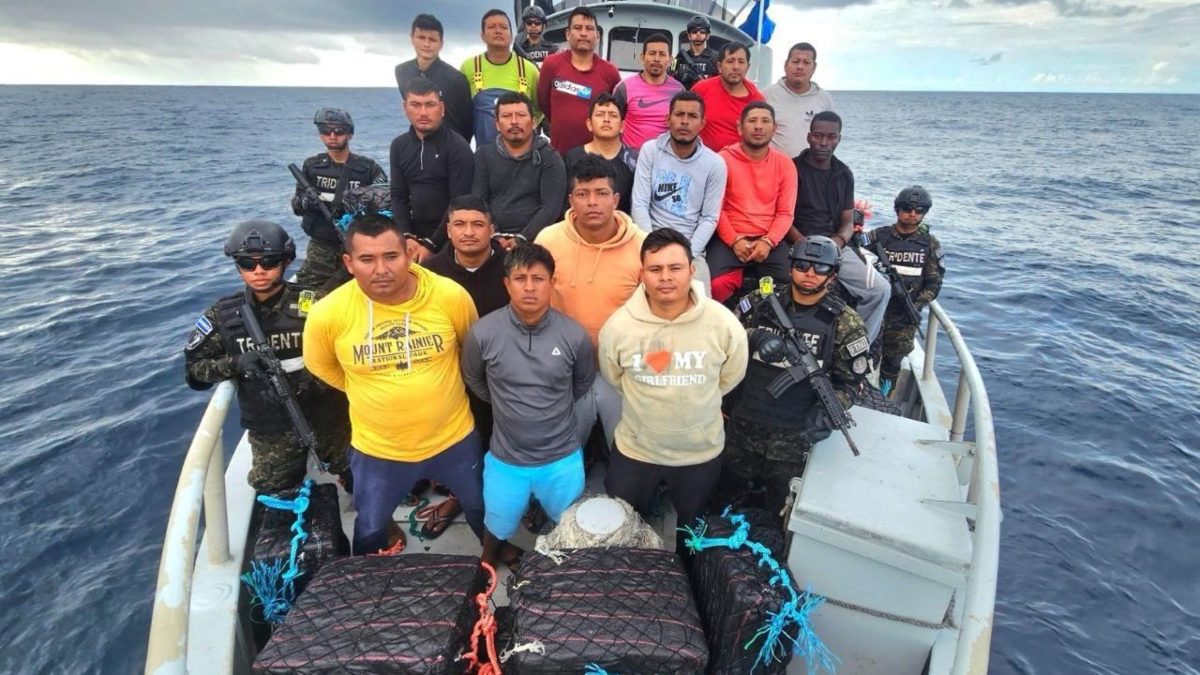
El Salvador has positioned itself as the country in the Americas with the strongest performance in the Global Organized Crime Index (GOCI), ranking 18th out of 35 countries in the region and 77th out of 193 nations worldwide that are engaged in the fight against organized crime.
According to the index, El Salvador outperforms Mexico, which ranks 2nd in the Americas and 3rd globally, as well as the United States, which holds the 14th position in the Americas and 60th worldwide.
The Global Organized Crime Index evaluates multiple indicators, including criminal markets, human trafficking and smuggling, extortion, arms trafficking, counterfeit goods trade, illicit trade in excisable goods, environmental crimes involving flora and fauna, crimes against non-renewable resources, heroin, cocaine, cannabis and synthetic drug trafficking, cyber-dependent crimes, financial crimes, mafia-style groups and criminal networks.
Within Central America, El Salvador surpasses Panama, which ranks 8th in the Americas and 21st globally; Costa Rica, ranked 13th in the region and 58th worldwide; Nicaragua, ranked 16th and 69th; Honduras, positioned 5th in the Americas and 13th globally; and Guatemala, which holds 9th place in the Americas and 25th worldwide.
Belize is the only Central American country ranked above El Salvador, placing 23rd in the Americas and 103rd globally. However, while El Salvador climbed 25 positions compared to its 2023 ranking—improving from 52nd to 77th—Belize dropped three positions, moving from 106th in 2023 to 103rd in the current index.
El Salvador’s progress in combating organized crime also surpasses that of several countries across the Americas, including Venezuela, Colombia, Ecuador, Brazil, Peru, Chile and Paraguay, all of which rank lower both regionally and globally.
-

 Central America3 days ago
Central America3 days agoPanama seizes over three tons of drugs hidden in Caribbean port container
-

 International3 days ago
International3 days agoPolice investigate deaths of Rob Reiner and wife as apparent homicide
-

 International4 days ago
International4 days agoSeveral people shot in attack on Brown University campus
-

 Central America3 days ago
Central America3 days agoOAS urges swift recount in Honduras as election results remain uncertain
-

 Central America1 day ago
Central America1 day agoBukele says AI partnership with xAI will transform public education in El Salvador
-
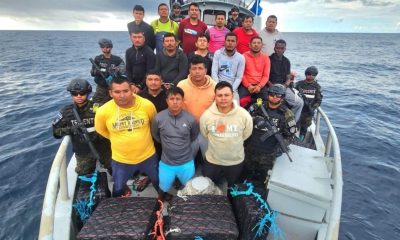
 Central America1 day ago
Central America1 day agoEl Salvador ranks among top countries in the Americas in fight against organized crime
-

 International4 days ago
International4 days agoU.S. and Mexico Reach Deal to Address Water Deficit Under 1944 Treaty
-

 International8 hours ago
International8 hours agoRubio rules out 2028 presidential bid if Vance runs
-
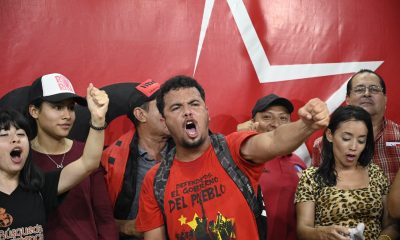
 Central America8 hours ago
Central America8 hours agoArrests and clashes in Tegucigalpa as vote count continues after Honduras election
-
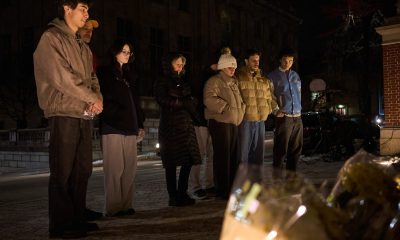
 International8 hours ago
International8 hours agoAuthorities search for armed and dangerous suspect in fatal Brown University attack










































































































